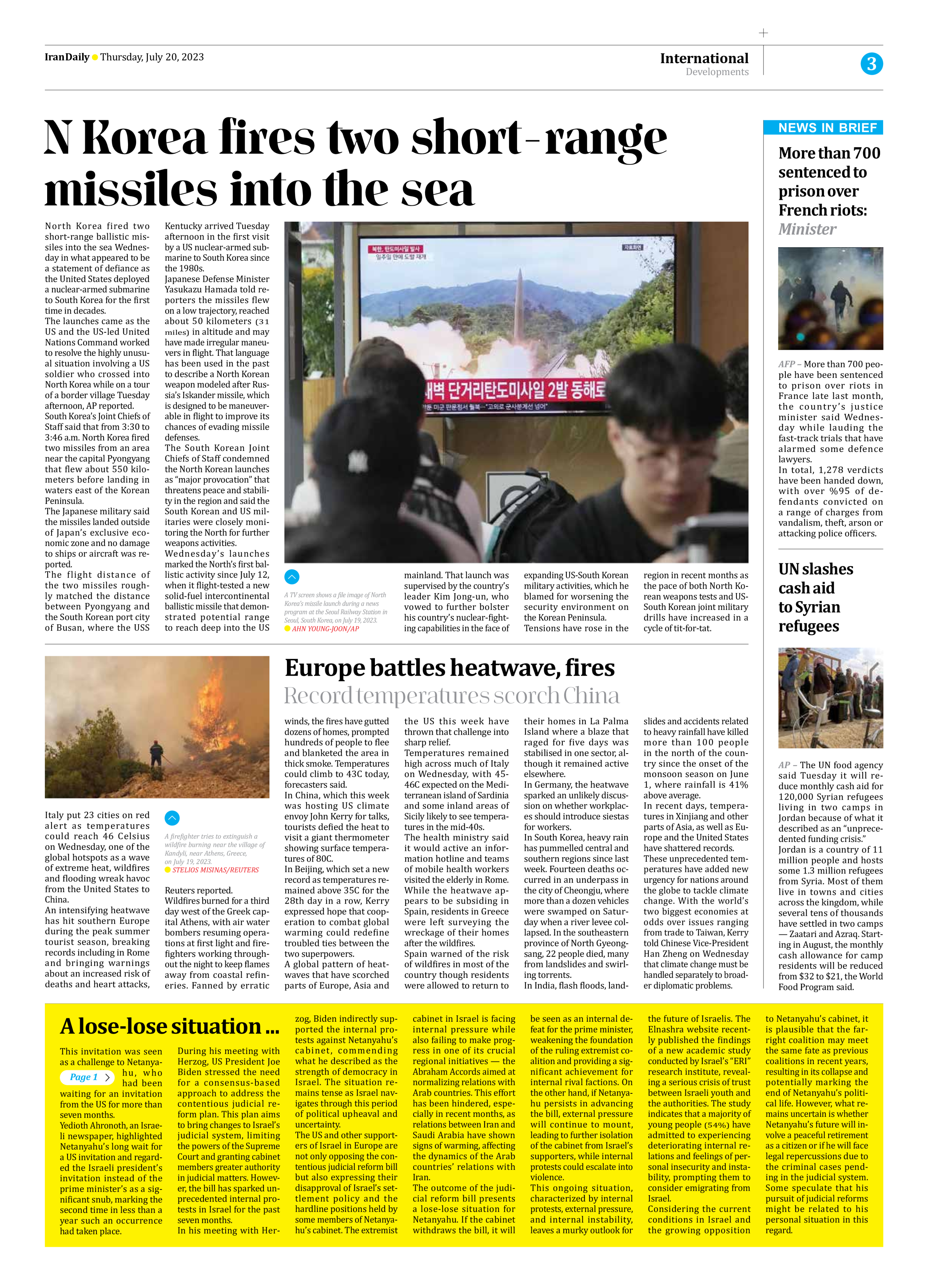
Europe battles heatwave, fires
Record temperatures scorch China
Italy put 23 cities on red alert as temperatures could reach 46 Celsius on Wednesday, one of the global hotspots as a wave of extreme heat, wildfires and flooding wreak havoc from the United States to China.
An intensifying heatwave has hit southern Europe during the peak summer tourist season, breaking records including in Rome and bringing warnings about an increased risk of deaths and heart attacks, Reuters reported.
Wildfires burned for a third day west of the Greek capital Athens, with air water bombers resuming operations at first light and firefighters working throughout the night to keep flames away from coastal refineries. Fanned by erratic winds, the fires have gutted dozens of homes, prompted hundreds of people to flee and blanketed the area in thick smoke. Temperatures could climb to 43C today, forecasters said.
In China, which this week was hosting US climate envoy John Kerry for talks, tourists defied the heat to visit a giant thermometer showing surface temperatures of 80C.
In Beijing, which set a new record as temperatures remained above 35C for the 28th day in a row, Kerry expressed hope that cooperation to combat global warming could redefine troubled ties between the two superpowers.
A global pattern of heatwaves that have scorched parts of Europe, Asia and the US this week have thrown that challenge into sharp relief.
Temperatures remained high across much of Italy on Wednesday, with 45-46C expected on the Mediterranean island of Sardinia and some inland areas of Sicily likely to see temperatures in the mid-40s.
The health ministry said it would active an information hotline and teams of mobile health workers visited the elderly in Rome.
While the heatwave appears to be subsiding in Spain, residents in Greece were left surveying the wreckage of their homes after the wildfires.
Spain warned of the risk of wildfires in most of the country though residents were allowed to return to their homes in La Palma Island where a blaze that raged for five days was stabilised in one sector, although it remained active elsewhere.
In Germany, the heatwave sparked an unlikely discussion on whether workplaces should introduce siestas for workers.
In South Korea, heavy rain has pummelled central and southern regions since last week. Fourteen deaths occurred in an underpass in the city of Cheongju, where more than a dozen vehicles were swamped on Saturday when a river levee collapsed. In the southeastern province of North Gyeongsang, 22 people died, many from landslides and swirling torrents.
In India, flash floods, landslides and accidents related to heavy rainfall have killed more than 100 people in the north of the country since the onset of the monsoon season on June 1, where rainfall is 41% above average.
In recent days, temperatures in Xinjiang and other parts of Asia, as well as Europe and the United States have shattered records.
These unprecedented temperatures have added new urgency for nations around the globe to tackle climate change. With the world’s two biggest economies at odds over issues ranging from trade to Taiwan, Kerry told Chinese Vice-President Han Zheng on Wednesday that climate change must be handled separately to broader diplomatic problems.







